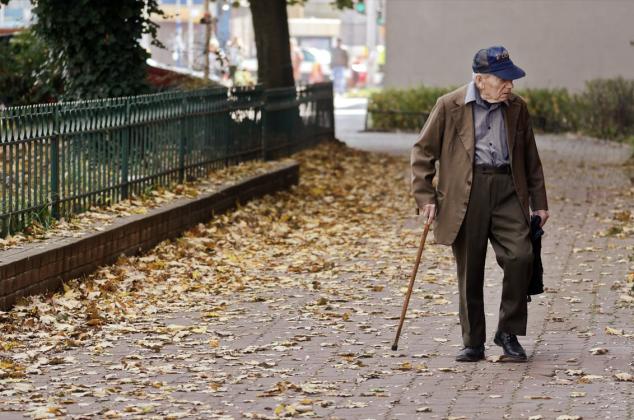New data shows 80% of money lost in sweepstakes, lottery and prize schemes is from consumers over 65, according to a Better Business Bureau (BBB) report shared by BBB Southeast Texas President Liz Fredrichs.
Sweepstakes, lottery and prize scams have not lessened their financial and emotional harm, despite concerted law enforcement efforts, according to the latest data from the BBB, the Federal Trade Commission (FTC) and the Internet Crime Complaint Center (IC3). This fraud is especially devastating to older adults in the United States and Canada. BBB cautions this group to be particularly vigilant about recognizing and avoiding tactics used by scammers to prey on people during the COVID-19 crisis.
BBB issued an in-depth investigative study on sweepstakes and lottery scams in June 2018. In the two years since that study was issued, BBB Scam Tracker reports have declined somewhat, but complaints to the FTC and IC3 have held fairly steady, both in number and in reported financial losses.
Adults age 65 and older remain overwhelmingly the largest group victimized by these scams. Of the 4,417 sweepstakes and lottery scams reported to BBB Scam Tracker since 2018, nearly half, or 1,980, came from victims over the age of 65. This age group lost $2.52 million of the $3.1 million in losses reported to Scam Tracker, representing more than 80% of money lost by Americans and Canadians to this fraud. Combined FTC and IC3 complaints reflect losses of $112 million in 2017, $182.6 million in 2018 and $170.4 million in 2019.
“The law requires you to purchase a ticket to play the lottery, but a legitimate lottery or sweepstakes will never ask its winners to wire money or buy gift cards to claim the prize,” Fredrichs warned. “It’s heartbreaking that these fraudsters are continually finding new ways to prey on older people who are dreaming of a big win or a financial windfall in their golden years.”
Fredrichs also stated that SETX continues to be an area targeted by sweepstakes scammers year-round.
Scammers have updated their sales pitches to potential victims to include COVID-19 twists. According to Scam Tracker reports, scammers are discussing supposed COVID-19 safety precautions for prize delivery, and attributing delays in awarding prizes to the pandemic.
One impostor scam, fraudulently using the Publisher Clearing House name in connection with a bogus COVID-19 Census Grant, allows targeted victims to choose their winnings by the amount of fees they are willing to pay. Using social media, scammers publish a list of supposed winners and invite people whose names are not on the list to provide personal information and choose their award level.
Many sweepstakes and lottery scams continue to originate from Jamaica, as reported in the original study. This is particularly true of cold calls over the phone. However, scammers may reach out by phone, email, U.S Postal Service or even social media. U.S. postal inspectors say now many victims are being instructed to mail cash to scammers. Besides offering fake cash prizes, scammers may lure victims by also claiming victims will receive luxury cars, laptops or other high-end merchandise. A local man reported to BBB SETX the he had received several phone calls, claiming he had won $6.5 million dollars from Publishers Clearing House. The imposter stated that in order to claim his prize money, the man had to first send several gift cards and a money order for a total of $1,450 – which he did.
It was only when the imposter called back again stating he would win an even bigger prize if he sent another $2,500 that the victim realized it was a scam and reported the incident to the BBB and the FTC.
Law enforcement officials have prioritized sweepstakes and lottery scams, with dozens of cases prosecuted since 2018 in both the U.S. and Jamaica. These prosecutions have included not only scammers themselves, but victims who agreed to become part of additional scam activity. While these “money mules” typically are not prosecuted if they were unaware of their own participation in scams, known accomplices have been the target of government action. Additionally, the U.S. Department of Justice has been active in targeting and prosecuting scams that victimize seniors. It conducts an annual Elder Fraud Sweep, which netted more than 400 accused scammers worldwide in 2020 and more than $1 billion in reported financial losses. The Transnational Elder Fraud Strike Force, a joint effort by several federal agencies, was established in 2019 and is aggressively prosecuting defendants caught in the sweep.
Tips for detecting and avoiding sweepstakes, lottery or prize scams:
● You’ve got to play to win. A notification that you have won a prize in a contest you do not remember entering should be a red flag.
● True lotteries or sweepstakes don’t ask for money. If they want money for taxes, themselves, or a third party, it most likely is a scam.
● Call the lottery or sweepstakes company directly to see if you won. According to Publishers Clearing House (PCH), it does not call or email people in advance to tell them they’ve won a major prize.
Report a sweepstakes, lottery or prize scam to the BBB Scam Tracker at bbb.org/scamtracker, the FTC at ftc.gov/complaint, or the Internet Crime Complaint Center (IC3) at ic3.gov/complaint/default.aspx.


